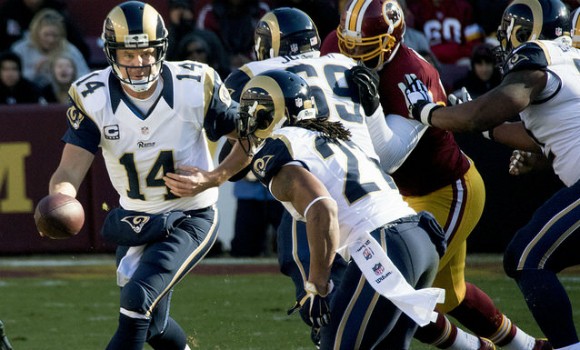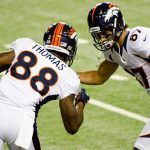This summer, quarterback Patrick Mahomes signed the largest contract in sports history, committing himself to the Kansas City Chiefs for the next decade. The deal was a $503-million whopper that shocked even Mahomes himself, to say nothing of sports reporters, who labeled it “insane” and “farcical” (in an apparently complimentary sense).
But despite the unprecedented size of Mahomes’s deal, the numbers involved in these mammoth contracts have been perceptually incomprehensible for readers for quite a long time. Humans struggle to distinguish large quantities that are beyond our capacity for visualization. As such, numbers in the millions and billions, separated by orders of magnitude, seem to converge into one amorphous concept of wealth, when in reality, as Data Driven Investor’s Noah Omdal notes, the difference between $1 million and $1 billion is comparable to the difference between $0 and $1 billion.
Thus, readers need new ways to understand how contracts contrast. Sports reporters shouldn’t just trot out the reliable “highest-paid [position]” epithet, given how frequently such contracts are dethroned. Instead, journalists should consider highlighting regional economic factors such as taxes and exchange rates in order to lend additional local flavor and insight to their stories. Part I of this blog post will cover the role of state income taxes in player acquisition.
Luring Players with State Income Tax
In 2017, long-suffering Minnesota Timberwolves fan and economics professor Erik Hembre contended that his team’s struggles might derive from an unlikely source: section 290.06(2)(c)(4) of the state’s statutes, which dictates that a 9.85-percent tax be assessed on Minnesota’s highest earners.
Hembre broadened his claim, asserting that “higher taxes consistently predict worse performance in every league.” If the Timberwolves played in an income-tax-free state like Texas (home of the Houston Rockets, who eliminated Minnesota last time they reached the playoffs), they “might win two to five more games each year.”
Clearly, the implications of state income tax on sports business are substantial — and widely understated. Hembre concluded his article by campaigning for leagues to implement tax-adjusted salary caps and fees to yield a more level playing field. Until his proposal gains traction, however, sports will be filled with tax-based asymmetries that journalists should be eager to call out.
For instance, Cheick Diallo moved from the New Orleans Pelicans to the Phoenix Suns last year. He switched from a team with four divisional opponents in income-tax-free states (more or less; Tennessee taxes interest and dividends) to one in a division of clubs from California, with the highest rate in the country (13.3%). Because players pay taxes wherever they play (the “jock tax”), Diallo stood to lose a considerable amount of salary from road games, despite Louisiana and Arizona’s comparable at-home rates.
Another example, from Sports Illustrated: the NFL Draft has a rookie pay scale so that players who are drafted higher earn more money, but after taxes, the Miami Dolphins’ first-round pick Tua Tagovailoa will earn more than the New York Giants’ Andrew Thomas, despite being selected one spot later. In 2017, those same Dolphins fell victim to a different tax quirk, when the devastation from Hurricane Irma forced them to briefly relocate to Oxnard, Calif. This period in the state “likely cost Ndamukong Suh between $50,000 and $100,000.”
There is no shortage of opportunities to report on sports finance, and detailing the impact of state taxes could lend an interesting spin to a seemingly routine story like Diallo’s. Check back for Part II of this blog post, which will cover the comparable influence that currency exchange rates, and particularly the strength of the Canadian dollar, wield in U.S. sports.








